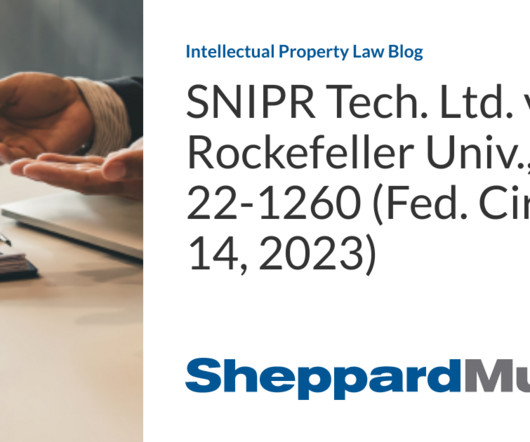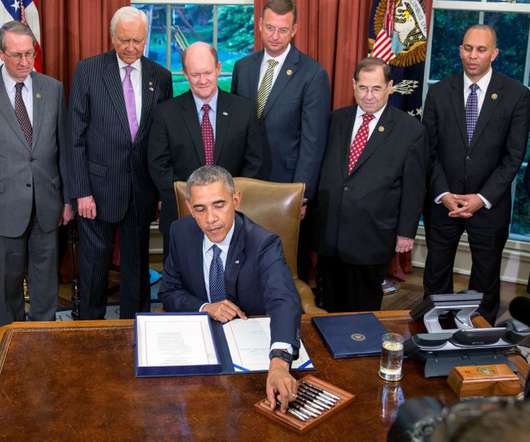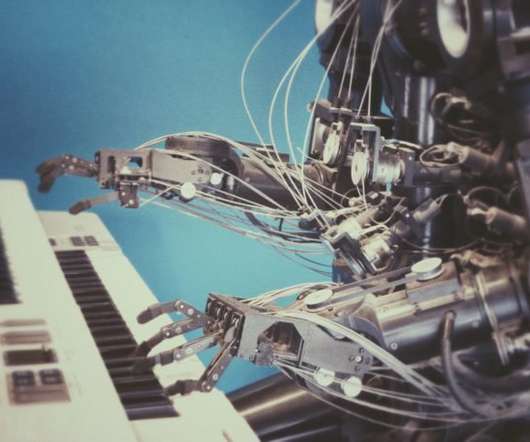SNIPR Tech. Ltd. v. Rockefeller Univ., No. 22-1260 (Fed. Cir. July 14, 2023)
Intellectual Property Law Blog
OCTOBER 6, 2023
. § 135, and specifically whether the Patent Trial and Appeal Board (Board) has the authority to cancel SNIPR’s pure AIA claims through an interference for lack of invention priority under pre-AIA § 102(g). Background In 2011, Congress passed the AIA, which transformed the U.S.

















Let's personalize your content